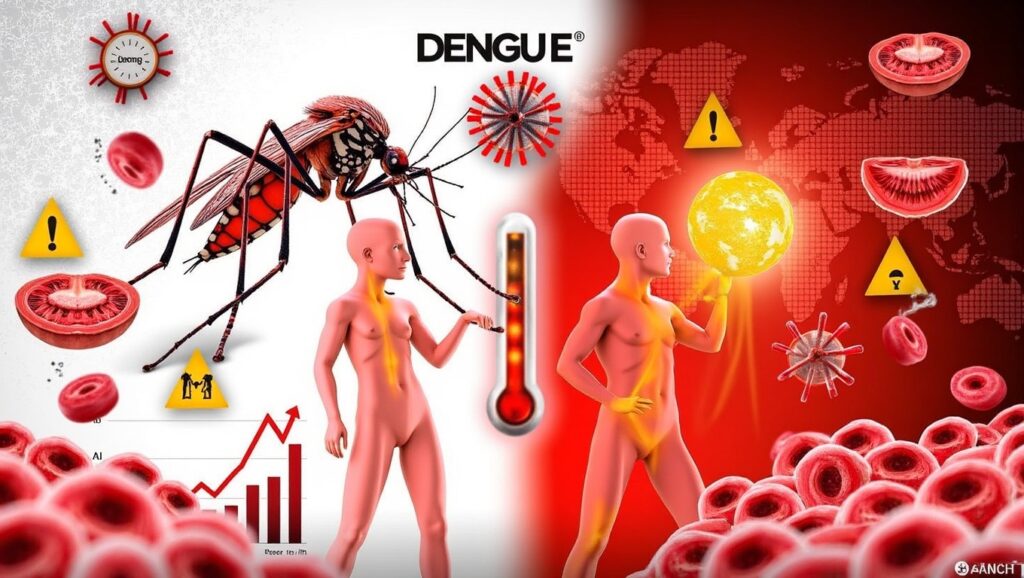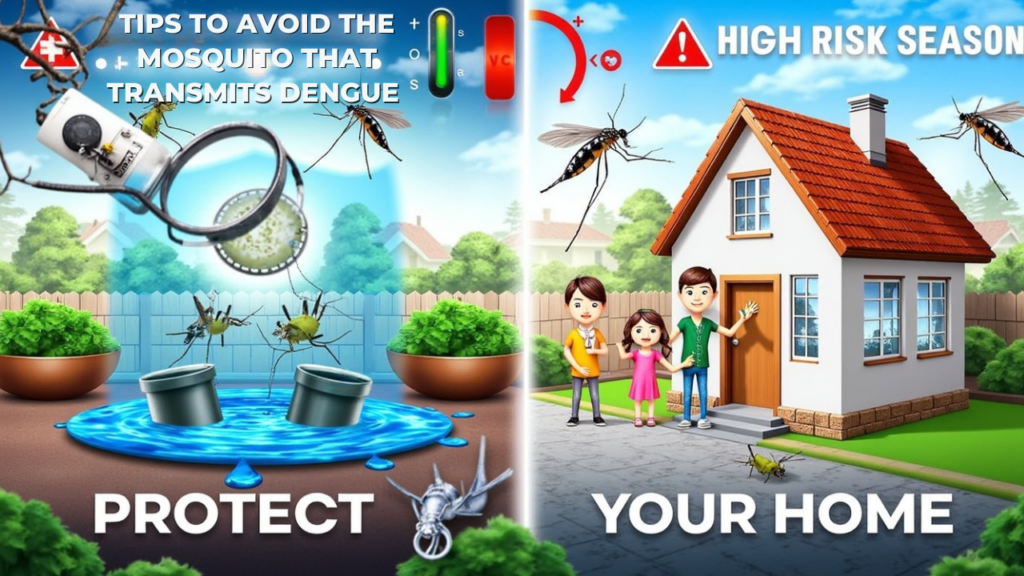Learn about dengue and severe dengue, their symptoms, treatments, and prevention. Stay informed and protect your health with our insights.

Understanding Dengue and Severe Dengue
Dengue is one of the most significant mosquito-borne viral diseases, affecting millions worldwide annually. Transmitted by the Aedes aegypti mosquito, dengue is prevalent in tropical and subtropical climates, particularly in urban and semi-urban areas. Severe dengue, also known as dengue hemorrhagic fever, is a more severe form of the disease that can lead to life-threatening complications, including organ damage and shock.
With over 390 million dengue infections occurring globally each year, according to the World Health Organization (WHO), it’s critical to understand the disease, its impact, and strategies to combat its spread.
Symptoms of Dengue and Severe Dengue
Dengue symptoms typically appear 4 to 10 days after being bitten by an infected mosquito. They include:
- High fever (104°F or higher)
- Severe headaches
- Pain behind the eyes
- Muscle, joint, or bone pain (often called “breakbone fever”)
- Rash
- Mild bleeding (e.g., nosebleeds or gum bleeding)
Severe dengue, however, presents a more critical scenario. Symptoms include severe abdominal pain, persistent vomiting, rapid breathing, bleeding gums, and fatigue. If untreated, severe dengue can escalate to shock or even death.
The Global Impact of Dengue
Dengue is a major public health challenge, particularly in Asia, Latin America, and Africa. The WHO identifies it as one of the top ten threats to global health. Urbanization, climate change, and increased travel have contributed to the rapid spread of dengue, making it a worldwide concern.
Efforts to control dengue often involve large-scale vector management programs to reduce mosquito populations. However, these efforts face challenges, such as resistance to insecticides and limited resources in endemic regions.
Treating Dengue and Severe Dengue
Currently, there is no specific antiviral treatment for dengue. Supportive care focuses on managing symptoms and preventing complications. Patients are advised to stay hydrated, rest, and use pain relievers such as acetaminophen (avoiding aspirin and ibuprofen, which can increase bleeding risks).
In severe dengue cases, immediate hospitalization is essential. Treatment may include fluid replacement therapy, blood transfusions, and careful monitoring to manage complications like organ failure.
Prevention Strategies
Preventing dengue and severe dengue starts with minimizing exposure to mosquito bites. Key strategies include:
- Using insect repellents containing DEET or picaridin.
- Wearing long-sleeved clothing and pants, especially during peak mosquito activity times (early morning and late afternoon).
- Sleeping under mosquito nets or in air-conditioned rooms.
- Eliminating standing water around homes to reduce mosquito breeding sites.
Community-based initiatives, such as public awareness campaigns and targeted vector control programs, also play a significant role in reducing dengue cases.
Practical Advice for Protection
Understanding the importance of dengue prevention can save lives. Here are some actionable tips to stay safe:
- Regularly inspect your surroundings for potential mosquito breeding sites, such as stagnant water in flower pots or discarded tires.
- Educate family members and neighbors about the risks of dengue and the importance of preventive measures.
- Stay updated on dengue outbreaks in your area and take extra precautions during high-risk seasons.

The Path Forward
Dengue and severe dengue are formidable challenges, but collective efforts in prevention, research, and treatment can make a difference. Governments, health organizations, and individuals must work together to combat this global health issue.
By staying informed and proactive, you can protect yourself and your community. Take action today—because when it comes to health, prevention is always better than cure.
Understanding Herpes Simplex Virus: A Widespread Infection


Pingback: Heat and Health: Understanding the Risks and Staying Safe - stay healthy today